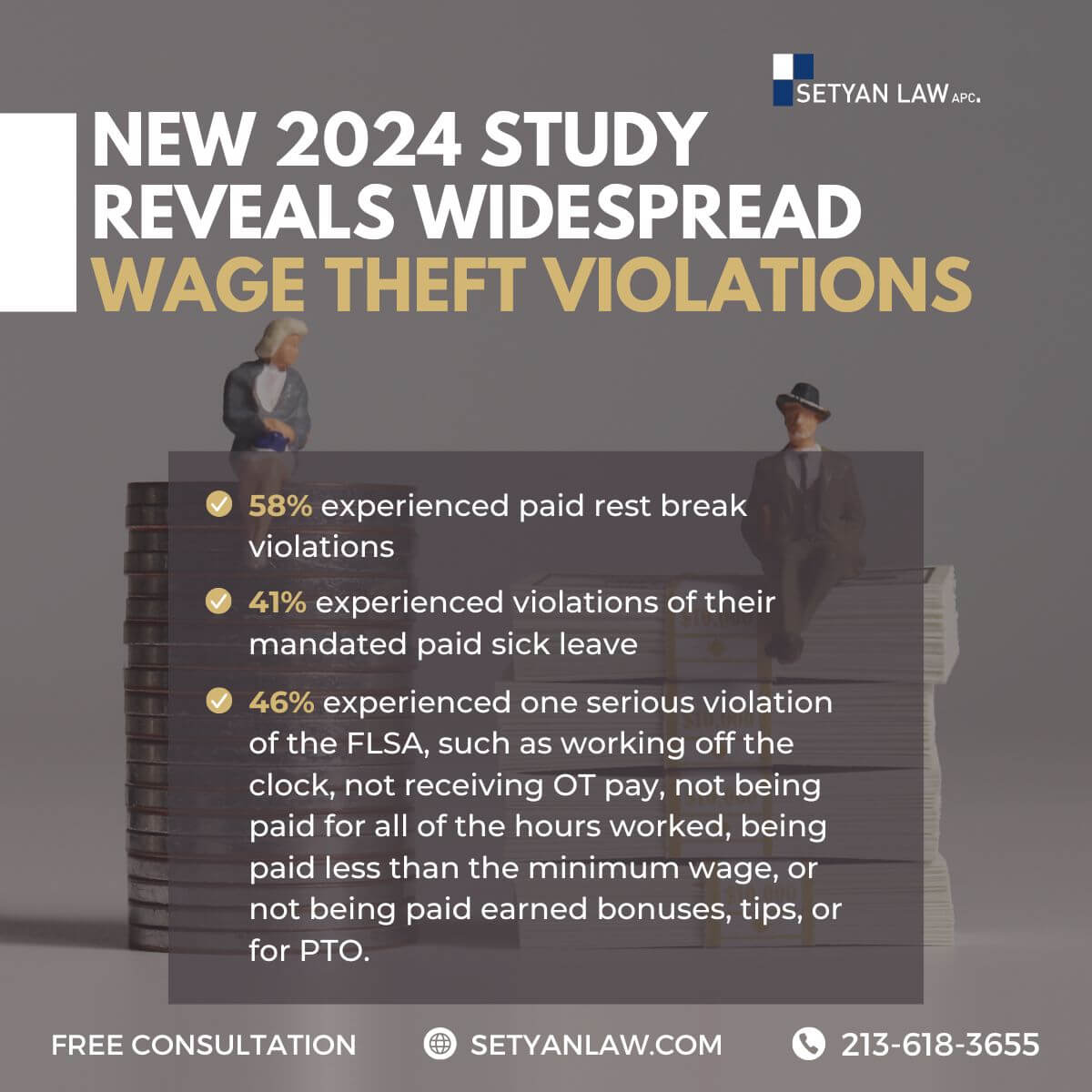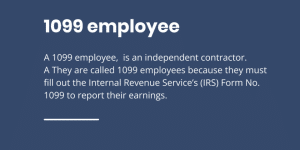Updated June 28, 2024
Wage Theft Rampant Among California’s Hardworking Hourly Employees
A comprehensive survey conducted by researchers at Harvard and UC San Francisco has uncovered a distressing reality – more than two-fifths of hourly workers in California have reported experiencing serious labor law violations, including widespread wage theft. This troubling finding sheds light on the stark disconnect between the state’s progressive worker protection laws and the harsh realities faced by those on the frontlines of the service industry.
The study, which polled around 1,000 workers employed at 98 large service sector companies, paints a grim picture. A staggering 41% of respondents stated that they had encountered at least one severe violation of their legal rights over the past year. These violations ranged from being denied overtime pay and forced to work off the clock to receiving less than the minimum wage and being deprived of earned bonuses, tips, or paid time off.
“These workers have been robbed, of their time and of their wages,” laments Daniel Schneider, the Malcolm Wiener Professor of Social Policy at Harvard Kennedy School and co-director of the Shift Project, the organization behind the study. “But, the vast majority do not come forward and when they do, they are far more likely to report this theft to the perpetrator than to the agencies charged with investigating and remedying the situation.”
Widespread Violations of Paid Sick Leave and Rest Break Entitlements
The survey’s findings extend beyond just wage theft, revealing widespread violations of other critical worker protections. A staggering 41% of respondents reported experiencing infringements on their mandated paid sick leave, with 12% lacking access to this benefit altogether and an additional 29% facing employer practices that undermined this legal entitlement.
Furthermore, a majority (58%) of the surveyed workers encountered violations of their right to paid rest breaks, which are legally required to be provided based on the length of a shift. These breaches ranged from being denied the appropriate amount of paid break time to being compensated at a lower rate during these rest periods.
“California has some of the most progressive labor standards in the country,” Schneider notes. “These standards are designed to raise the floor on job quality for some of the hardest working Californians. But violations of these standards by employers are routine.”
Barriers to Reporting Violations and Employer Retaliation
The survey sheds light on the significant barriers that prevent workers from reporting labor law violations. Of the respondents who described experiencing such transgressions, a mere 23% actually filed a formal complaint. The vast majority turned to their employer directly, with only around 2% seeking recourse through local, state, or federal authorities.
The reasons for this alarming under-reporting are multifaceted. Nearly 40% of those who did not report violations expressed a belief that doing so would be futile, while 20% simply did not know how to initiate the process. Tragically, 13% were unaware that they had even suffered a violation in the first place.
Moreover, the survey uncovered the harsh consequences faced by those who dared to speak up. Over half of the workers who reported violations said they experienced some form of employer retaliation, including reduced work hours, less favorable schedules and tasks, and even being assigned unsafe work duties.
The Urgent Need for Robust Enforcement and Worker Empowerment
The findings of this comprehensive study paint a sobering picture of the reality facing California’s hourly workforce. Despite the state’s reputation for progressive labor laws, the vast majority of workers in the service industry are routinely denied their legal entitlements, with little recourse or support available to them.
“These findings suggest that workers need more accessible ways to come forward when faced with labor standards violations and demonstrate that labor standards enforcement is a continual and crucial component in making legal entitlements a reality,” the study concludes.
To address this crisis, policymakers, labor advocates, and employers must work together to strengthen enforcement mechanisms, increase worker awareness and empowerment, and foster a culture of accountability within the service industry. Only then can the promise of California’s worker protection laws be truly realized and the scourge of wage theft and other labor law violations be eradicated.
Empowering California’s Hourly Workers: Strategies for Change
Addressing the pervasive problem of labor law violations in California’s service sector will require a multifaceted approach. Here are some key strategies that can help drive meaningful change:
Enhancing Labor Standards Enforcement
- Increasing the number of labor inspectors and investigators to proactively monitor workplaces and respond to worker complaints
- Imposing harsher penalties on employers found guilty of labor law violations, including significant fines and the potential for criminal prosecution
- Streamlining the process for workers to file complaints and access legal recourse, ensuring timely and effective resolution of cases
Improving Worker Awareness and Empowerment
- Launching comprehensive educational campaigns to inform hourly workers of their rights and the avenues available for reporting violations
- Providing free legal assistance and representation to workers seeking to assert their rights and recover unpaid wages
- Fostering a culture of worker solidarity and collective action, empowering employees to stand up against exploitative practices
Fostering Employer Accountability
- Requiring companies to prominently display labor law information in the workplace and provide workers with detailed pay stubs
- Implementing robust whistleblower protections to shield workers who report violations from retaliation
- Incentivizing employers to proactively self-audit their practices and address any identified issues
The Path Forward: Transforming California’s Service Sector
The disturbing findings of the Shift Project survey serve as a wake-up call, exposing the stark disconnect between California’s progressive labor laws and the harsh realities faced by the state’s hourly workforce. From widespread wage theft to the systematic denial of paid sick leave and rest breaks, the survey paints a troubling picture of rampant labor law violations.
Addressing this crisis will require a concerted effort on multiple fronts. Strengthening enforcement mechanisms, empowering workers to assert their rights, and fostering a culture of employer accountability will all be crucial in turning the tide. Only then can the promise of California’s worker protection laws be truly realized and the scourge of wage theft and other labor law violations be eradicated.
As the state grapples with this challenge, it is essential that policymakers, labor advocates, and employers work together to chart a path forward. By prioritizing the wellbeing and rights of California’s hardworking hourly employees, we can transform the service sector and set a new standard for worker protections nationwide.
If you have faced laobr violations at work due to your disability or have been terminated from your employment illegally, contact an Setyan Law. We are dedicated to helping you fight for the justice you deserve.
Call (213)-618-3655 for a consultation.






